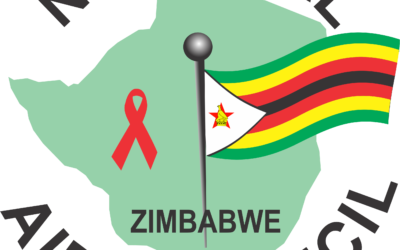
IT has been a busy year and 2024 is just five weeks away from ending. While some of the events were simply ordinary, others were significant. While some of the game-changing political events were important and accelerated geopolitical shifts, others forced the brown race to play second fiddle.
For the first time in many years, about 80 countries, which is about half the world’s population or around four billion people, went to the polls to choose their national leaders. With the way world politics have changed since the COVID-19 pandemic, most people thought elections would bring in new leaders.
While some retained their leadership, some of the elections led to leadership change. In the United States, Donald Trump bounced back after winning against the current Vice-President Kamala Harris. Trump has become the only US president to have won elections against two female candidates but lost to a man — the current President Joe Biden.
Could this be an indication of how some American voters view female leaders given Trump’s history of alleged scandals, immorality, and many legal challenges? Or is it that some Americans will vote for anyone or anything but not a female candidate?
During his first round as president, there was an argument that some Americans were not ready for such a radical change from a black male president to a female president. This argument's legitimacy came from that Hillary Clinton won the popular vote by nearly 2,9 million in the 2016 elections, while Donald J Trump won the Electoral College with 304 votes compared to 227 votes for Hillary Clinton.
Simply put, the majority of the voters wanted Hillary Clinton as their leader but those elected to express this view opted for Trump. That there is American democracy and how it is built to undermine the concept of one person, one vote. As if that is not enough, Trump has just appointed a white-only administration.
Moving on. In Britain, former Prime Minister Rishi Sunak stepped down as the leader of the Conservative Party this November. This followed his party’s worst election defeat in July which ended its 14-year reign. And Britain began the second half of the year with a new prime minister, Sir Keir Starmer of the Labour Party.
The wind of change affected the entire United Kingdom. In Scotland, Humza Yousaf was replaced by John Swinney; in Ireland, Leo Varadkar was replaced by Simon Harris; while in Wales, Vaughan Gething was replaced by Eluned Morgan.
- GCC grinding to a halt
- Letter from America: Is former president Donald Trump a hero or villain?
- Chidzivo, Tarakinyu clinch Kabag honours
- Letter from America: Is former president Donald Trump a hero or villain?
Keep Reading
In South Africa, the political tide took a new turn as Nelson Mandela’s African National Congress lost parliamentary majority. This forced the ANC into coalition with the Democratic Alliance. While the loss of votes by the ANC was expected, the coalition arrangement came as a huge surprise and marked a historic event where an African liberation movement formed a government with what is believed to be remnants of apartheid and colonialism.
It was not like there were no options in South Africa. However, the political egos of the ANC hindered engagement with other black progressive parties. Some analysts see this coalition as the resurgence of the political faces of white monopoly capital, with the same ideology that drove apartheid and colonialism reclaiming space using democracy as an access tool.
Others blame the loss of votes on the poor performance of the ANC government since it took over power in 1994. Whatever the case may be the ANC's influence in politics has diminished and perhaps it is time South Africans came to terms with the idea that there will be more white faces in their leadership going forward. There is no harm in reaffirming the rainbow nation ideology as long it benefits everyone in South Africa.
In soccer, the 68th Ballon d'Or was won by Rodrigo Hernández Cascante (Rodri) of Spain who plays as a defensive midfielder for Premier League club Manchester City. This was viewed by some as a controversial choice as they hoped that the Brazilian Vinícius Júnior would win the award for his contribution to his team Real Madrid and his national team. They argued that Vinícius Júnior won more trophies than Rodri last season.
In the beauty industry, after being hauled out of South Africa and its Miss Universe franchise on allegations that her parents acquired their identity papers unlawfully, Chidimma Vanessa Onwe Adetshina settled for the first runner-up slot after Maria Victoria Kjær Theilvig of Demark scooped the Miss Universe top prize.
After Adetshina fled and sought refuge in Nigeria, Mia le Roux who won Miss South Africa 2024 represented her country at the Miss Universe 2024 but withdrew due to health reasons. Thanks to Nigeria for standing by her during that tumultuous moment, Adetshina was crowned Miss Universe Africa and Oceania as the highest-ranked African Contestant of 2024. Her only white competition would have been Mia le Roux assuming she had reached the finals. That there caps the year for the brown race. There is more work to be done.
Tapiwa Gomo is a development consultant based in Pretoria, South Africa. He writes here in his personal capacity.










